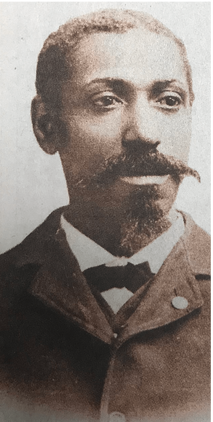Runaway Slave Turned Prominent Barber and Community Activist.
JACKSON MERRYWEATHER (1847-1909) was born on a tobacco plantation in Richmond Virginia on March 15, 1848 and given the name John Minneweather. The Underground Railroad led Jackson to Scranton in 1863.
Jackson Merryweather was fourteen when the Civil War broke out in 1861. Captain H.W. Derby and troops from Dunmore were already in the South fighting for the Union. How exactly Merryweather and Captain Derby first made acquaintance is unclear. However, one account that appeared in a 1909 edition of the New York Age claims that Jackson, as a little boy had taken to entertaining Captain Derby and his soldiers in Virginia:
“drifted into the camp and who amused the soldiers by his quaint talk and quainter pranks. Captain Derby became so attached to the little Negro, that he determined to Scranton on his return home and he did so.” - New York Age
Captain Derby aided Jackson on his journey to freedom, traveling via the Underground Railroad. Once they arrived safely in Scranton, Captain Derby supported him until enlisted in the Union Army in 1863 at age of 16, under the name Jackson Merryweather. According to the Scranton Tribune, “Mr. Merryweather served three years in the twenty-fifth regiment of United States colored troops. Merryweather served until the war was over. He enlisted under the “nom de plume” as a safeguard in the event he was captured while fleeing the Military and returned to his former owner in Richmond, VA. Although known by many as Jackson Merryweather, he appeared on government documents as John Minneweather and received pension under that name.
Jackson was more than just a reputable barber who had the skills, notoriety, and clientele—both Black and White. He is among the ranks of Scranton's first must successful Black residents. He strived to make sure that African Americans were stakeholders in the community and perceived as equal citizens who have a right to civil liberties. Jackson Merryweather was a community leader and activist—organizing committees with other local black leaders such as George W. Brown and Lewis .E. Morton making sure that black men were registering to vote and that Black vote was counted at the booth.
“Old and highly respected Negro who had lived in Scranton the greater part of his life” -New York Age, 1909
References:
Lackawanna Historical Society Archives, Scranton, Pennsylvania.
The Scranton Tribune (Scranton, Pennsylvania). 11 March 1891, Fri, Page 8.
The New York Age (New York, New York). 28 October 1909, Thu, Page 1

